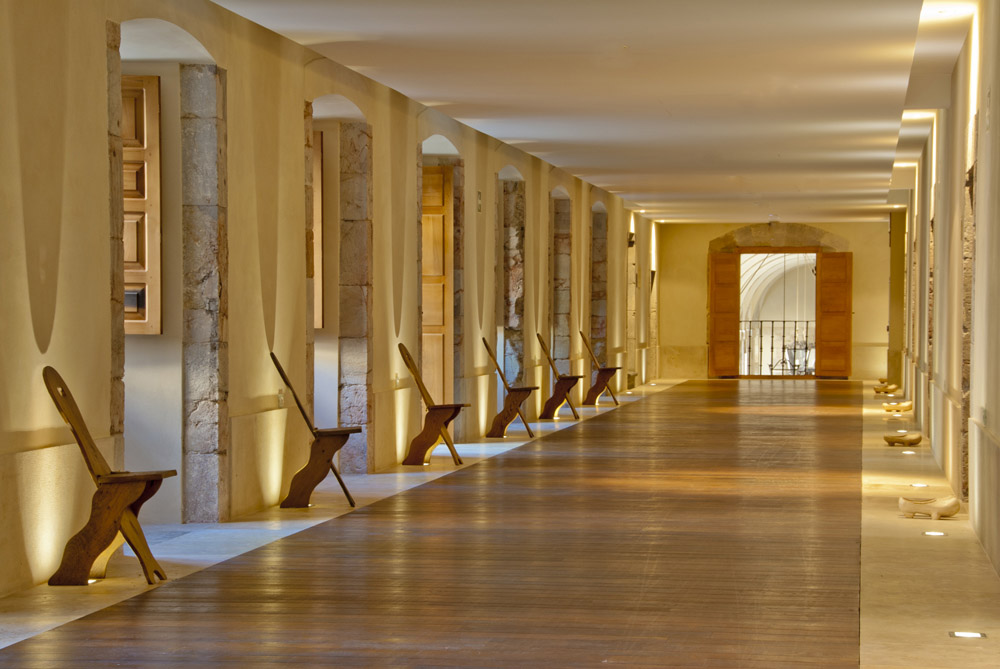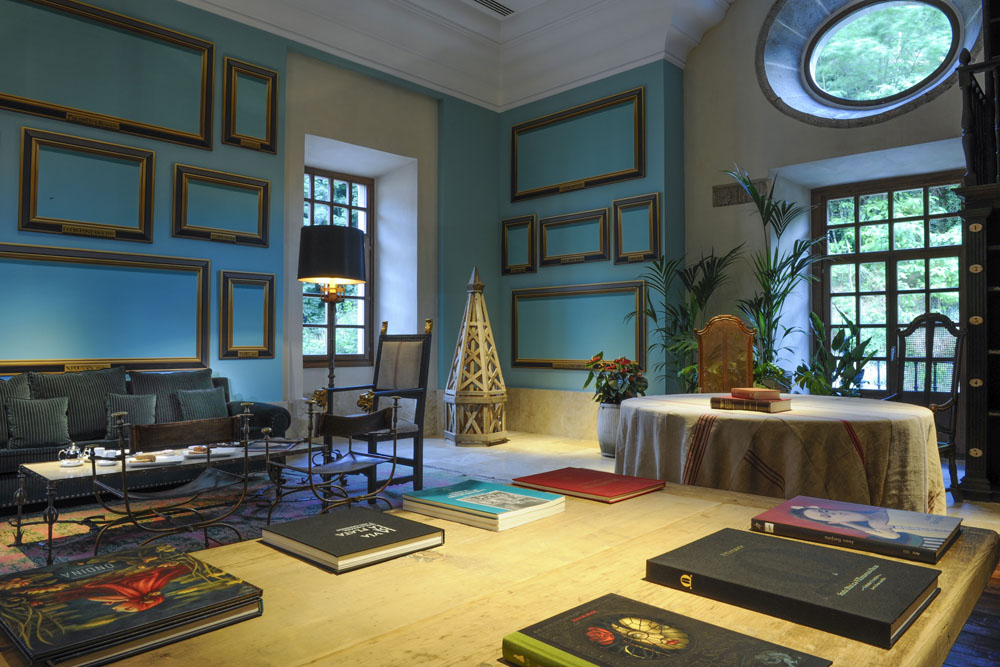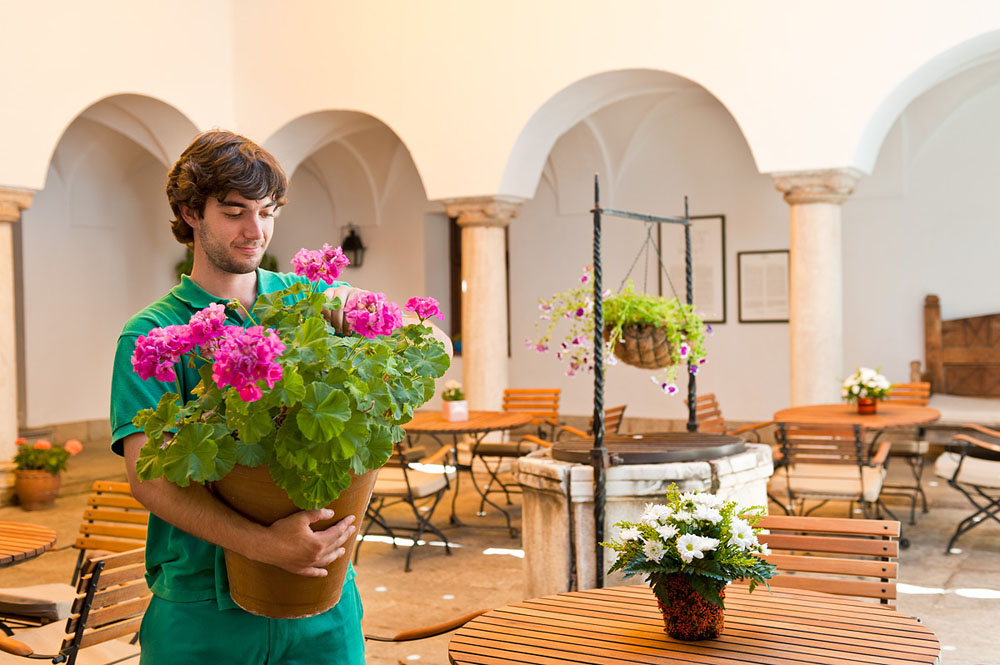
The Parador de Jaen is located in a 13th-century hilltop castle © Michelle Chaplow
by Michelle Chaplow
Some of the most attractive and unique places to stay in Spain are the Parador hotels. Today, they are finding an important new purpose: as possible hospitals to treat coronavirus patients
The Spanish Government has placed The Paradors at the disposal of the authorities for their medical use, in other words as Covid-19 hospitals, or for any other need derived from the state of alert decreed here in Spain, due to the current coronavirus outbreak.
On the 18th of March 2020, Óscar López Águeda CEO of Paradores announced that “We are going through a very difficult time throughout the world, a crisis in which health has become the absolute priority. For this reason, in line with the state of alarm decreed by the Government of Spain, we have closed our Paradors in order not to contribute to the spread of the pandemic”
The Paradors officially known as Paradores de Turismo de España. are a chain of state-owned and run luxury hotels, founded by King Alfonso XIII of Spain in 1928.They were set up as rest stops – the word parar means to stop or stay – and are a fabulous way to discover the country. The Parador hotels are an important part of Spanish hospitality and heritage.
Many of the hotels enjoy superb locations in historic buildings with panoramic views. I’m a huge advocate of historic preservation, and as many of the hotels are former historic castles, palaces and convents, they won me over from the start. in 1991 when I became resident in Spain.

Hotel Parador de Corias, a former Monastery © Michelle Chaplow
There are 97 paradores across Spain: you can find them in all kinds of locations, from medieval towns to coastal resorts. I have been fortunate enough to stay as a guest in about half of them over the last 25 years, often as a base for photographic assignments. They aren’t always as slick in terms of service as private luxury hotels, but their advantages outweigh this by far: the chance to stay in historic castles and convents in excellent locations, with convenient parking and reasonable prices.
The first parador to open was the Parador de Gredos in Avila.
The Parador de Jaen is located in a 13th-century hilltop castle, while the Parador de Corias in Asturias is a former monastery so big that it was locally known as “El Escorial de Asturias”. The Parador de Corias opened its doors as a hotel in 2013, and I was commissioned to photograph it for the Paradors’ marketing department.

The Library at the Parador de Corias © Michelle Chaplow
Not all of the Paradors are in historic buildings, but those that are, are jewels in the crown. The Parador de Merida is relatively new, but it’s in the heart of the Extremaduran capital, so convenient for visiting the ancient Roman amphitheatre. The Parador de Granada is situated literally within the Alhambra, in the former convent of San Francisco.

A member of staff carefully tending the geraniums in the patio of the Parador de Merida © Michelle Chaplow
Hotels used as hospitals in History
Throughout history, many hotels have been used to billet troops in wartime such as Landmark in London, the Hydro Majestic in Sydney, and the Vinoy (originally the Vinoy Park) in Florida.
Actually rather less as hospitals. The practice became popular in the American Civil War. St Charles Hotel, Richmond, Virginia observed “men in every stage of mutilation waiting for a surgeon on bare boards” in 1862.
The Oriental, Kings Cross, Sydney. served to quarantine nurses with measles and the Breakers Hotel, Palm Beach Florida, became Ream General Hospital during the second world war.
Luisa May Alcott, best know as the author of Little Women, was a nurse for the Union in the Civil War and worked at Georgetown’s Union Hotel Hospital, (Washington DC) in 1862/3
She complained of conditions as it was not a suitable building. It was an building, out of repair with poor bathing facilities.
Andres Augustin president of The Most Famous Hotels in the World cited that many hotels have been used as hospitals in history.
“Hotels were used as hospitals during or immediately after wars. This was the logical combination of two simple circumstances: one the lack of travellers i.e. business and two the availability of beds and rooms in a clean and safe environment”
Thoughts about The Paradors as possible hospitals to treat coronavirus patients
I asked Hotel Critic and keynote speaker Fernando Gallardo about his views on the subject of The Paradors being used as potential hospitals.
“The collaboration of Paradores in this Spanish health crisis is highly commendable. However, I do not see this proposal as being very viable given that many of their geographical locations are remote, it is the cities where there are the greatest number of people affected by the coronavirus.
The unique architectural characteristics of The Paradors, full of ‘nooks and crannies’ that would hinder the transit of health personnel. There are never huge properties and therefore their size would not allow for the care for a large contingency of patients. Also its important to be mindful that if it did happen, some patients in other locations convalescing may hold a grudge of those enjoying such valuable historical stays, with such extraordinary views.
Either way, I would like to send a message to all the people who make up that great family, which represents the flagship of Spanish tourism throughout the world, the very idea, that they could be used as possible hospitals, should be applauded by all Spaniards”.

The flag flying high over the Spanish Paradors © Michelle Chaplow
It´s hard to imagine Spain without the Paradors, then you go one step further and you imagine Coronavirus patients recovering in castles around the country. How heart-warming would that be? Maybe I´m just a romantic? I take my hat off to the idea; it makes perfect sense, as they are strategically placed around the country to help so many of those affected by the virus. Only time will tell.
I would love to hear your opinions on this subject.
